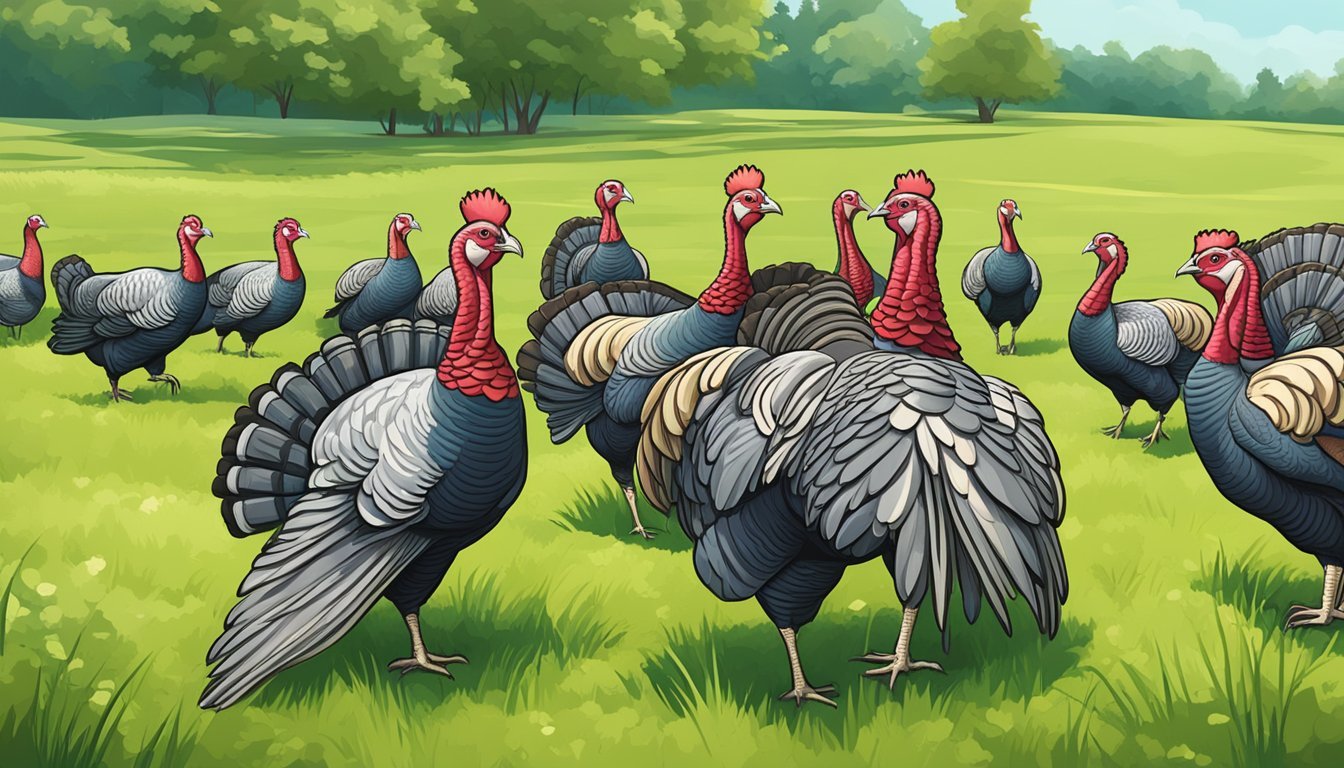Pasture Raised Turkey
Benefits and Buying Guide
Pasture-raised turkey is gaining attention as a premium option for health-conscious consumers and ethical eaters alike. Unlike conventional turkeys (What wine goes well with turkey?) that are often raised in confined spaces, pasture-raised birds roam freely in open pastures. This method of farming allows the turkeys to forage for a significant portion of their diet, which contributes to the development of leaner, flavorful meat.
The concept hinges on the principle of raising birds in a more natural and sustainable environment. Turkeys raised in this way have access to fresh air, sunlight, and space to exercise, which is believed to benefit their welfare significantly. The methods include a commitment to organic practices and avoiding antibiotics and growth hormones, which aligns with USDA organic standards in many cases.
Consumers interested in pasture-raised turkey often do so for the perceived benefits, which include the texture and taste of the meat as well as the environmental and animal welfare advantages. As more individuals seek out healthier and more sustainable food sources, pasture-raised options represent a significant sector of the ethical farming movement.
Understanding Pasture Raised Turkey
A pasture-raised flock is raised outdoors in a way that closely resembles its natural life. The concept emphasizes animal welfare and environmental health.
What Are Pasture Raised Turkeys?
They are farm birds that are allowed to roam freely on pasture land, engaging in natural behaviors such as foraging for insects and grubs.
Unlike conventional turkeys that may be confined to tight quarters, these turkeys have access to outdoor spaces significantly larger than the industry norm for free-range conditions.
How they are farmed can profoundly impact their health and the quality of meat they produce.
Flock fed on fresh pasture typically enjoy a more varied non-GMO diet and experience less stress due to their environment, resulting in tastier and potentially more nutritious meat.
From an ethical standpoint, this method supports humane living conditions for the animals.
Environmentally, the turkeys naturally fertilize the land and aid in pest control.
Fresh Green Grass Pastures
Pasture-raised turkey thrives in an environment that includes open pastures where they can exhibit behaviors found in nature. This means they are fed a variety of grass, seeds, bugs, and insects, and sometimes supplemental organic grains, mimicking a more natural diet. They
Dietary differences in pastured turkeys make their meat tender and flavorful. Heritage breeds are also common to raise among pasture operations, contributing to genetic diversity and resilience in flocks.
Understanding Turkey Labels and Organic Turkey Certifications
When you purchase a turkey, be it a ground turkey or a whole bird for Thanksgiving, consumers should look for specific labels and certifications to ensure the quality and origin:
USDA Certified Organic Turkey Meat: Turkey sold with this label guarantees the use of certified organic feed and prohibits the use of antibiotics, synthetic hormones, and ensures it has been fed a non-GMO diet.
Pasture Raised Turkey: Indicates that the turkey has had access to outdoor pastures, which can contribute to leaner meat and a difference in taste.
Heritage Turkey: A term for breeds sold that have historical lineage, often associated with slower growth rates and a richer flavor that enhances recipes.
Turkey Welfare and Turkey Farm Sustainability
A pasture-raised turkey typically has a higher welfare standard as they are given access to open pastures where they can forage with a better balance that includes berries, insects, and natural foliage.
Pastures outdoors allow them to exercise and exhibit natural behaviors like scratching and pecking at the ground. This improves their physical health and contributes positively to their overall well-being.
Pasture-raised turkey production is seen as more sustainable than conventional practices.
These turkeys help maintain healthy pastures through their foraging, which can reduce the need for artificial inputs.
Environmental Impact: Pasture-raised turkeys can benefit ecosystems by naturally fertilizing the soil and controlling pests.
Absence of Artificial Flavorings: Raising turkeys on pasture negates the need for artificial flavorings.
By understanding these ethical and environmental considerations, consumers can make more informed choices about their food sources.


